Your Planets
Portraits of the Planets
Aspects between Planets
The planetary ages
The planetary families
Planets in Signs
The Planets in comics
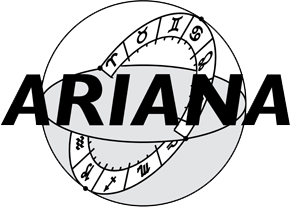

Official science history remembers Copernicus, and Newton and Kepler, founders of modern astronomy… trying to gloss over that all three were astrologers or astrologers. On the other hand, it had allowed the immense work of Ptolemy, who was one of the greatest scholars of all time, to sink into oblivion. For what? Probably because he openly called himself an astrologer. Pascal Charvet has retranslated, from the original Greek texts, his writings which helped to found Western astrology. We thus discover a cultured and rational man, for whom astrology was after all part of the natural sciences that every scientist should know.
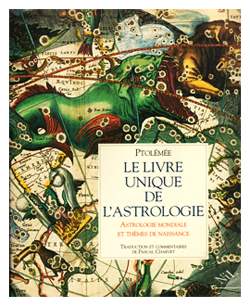 Richard Pellard: Pascal Charvet, you are a senior professor of classics. How did you become interested in Ptolemy, a scholar who lived in 2nd century AD and who was at the same time astrologer, astronomer, geographer and musician?
Richard Pellard: Pascal Charvet, you are a senior professor of classics. How did you become interested in Ptolemy, a scholar who lived in 2nd century AD and who was at the same time astrologer, astronomer, geographer and musician?
Pascal Charvet: This is because for a very long time I have been passionate about ancient texts that have either not been edited, not translated or misunderstood. Before looking into the fate of Ptolemy, the last work I looked into was a text by Eratosthenes which described the shapes of the western constellations and the myths attached to them. This made me discover how much we could make the authors of antiquity say anything and everything, and led me to discover astronomy. And at the time of Eratosthenes, astronomy and astrology were intimately linked. So I collaborated with an astronomer to better understand all this, and I started reading the Tetrabiblos of Ptolemy.
What inspired you this first reading?
At first, an attraction mixed with a certain mistrust. Being myself fascinated by the dense richness of mythologies, I found it dry, abstract, too rationalist. At constellations zodiac rich in living symbols, it seemed to me to substitute a kind of soulless mechanical wheel, devoid of life. Then I realized that the French translation I had was taken from Latin, and not from Greek, the language of the original text. To know what Ptolemy had really written and thought, we had to go back to Greek sources. It was then that I decided to retranslate Ptolemy to make the real text available to everyone, and that I discovered the interest of his immense scientific work and his incredible knowledge.
So you don’t hesitate to talk about “science” to evoke the astrological works of Ptolemy?
Exactly, and the astronomer friend with whom I worked on this book, a great specialist in Ptolemy, shared my opinion, although he was not himself an astrologer at all. We were appalled to see to what extent the studies devoted to him highlighted the Ptolemy as astronomer and geographer and tried to minimize, even devalue the Ptolemy astrologer, while in his mind, all this knowledge was intimately linked in a deep coherence. internal. This revolted me…
Johannes Kepler, one of the founders of modern astronomy and astrology, met the same fate: most historians of science today peddle the legend that he did not really believe in astrology and that he drew horoscopes to feed his family…
For Kepler as for Ptolemy, there is indeed a great injustice here. As far as Ptolemy is concerned, some rationalist historians went so far as to say that the astrological part of his work was not his. An in-depth study shows that this is false: in his work everything holds together, everything is coherent.
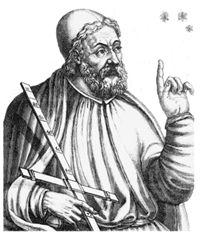 Can you describe Ptolemy to us? What kind of man was he?
Can you describe Ptolemy to us? What kind of man was he?
Of this immense scholar, we know almost nothing, except that he lived around 100–170 AD It seems that he wanted to withdraw, to disappear behind his work, to leave no trace of his individual subjectivity, of his personality. He was a talented and rigorous pioneer in all fields: astronomy and astrology of course, but also optics, acoustics, music, geography, historical chronology, etc. And yet, we do not know who he was and of his life, nothing anecdotal remains. According to an archaeological testimony (a stele where he laid down the principles of his science and his vision of the world), it seems almost certain that he lived in Lower Egypt in Canopus, a city on the Nile near Alexandria.
How does Ptolemy’s work remain modern and contemporary, despite the eighteen centuries that have passed since he wrote it?
As I told you, at first I had an unfavorable prejudice towards Ptolemy: I found him drying, simplifying. A more careful study of his work made me understand that it was exactly the opposite: his thought is of great subtlety and complexity, always close to reality and the living, and his reasoning is characterized by a very great rigor which contrasted with the magico-symbolist jumble of astrology in vogue at his time. No one before him had taken so much practical and theoretical care to found a natural astrology based on observation. His approach was the same in all the other areas he tackled. In this sense, it is a precursor of modern science, even if the latter no longer wants, and it is a pity, to hear about astrology.
Contemporary astrologers who, in line with Ptolemy, defend a rigorous, natural and rational approach to astrology are confronted with the same magico-symbolic jumble: stupid horoscopy, irrationalism of conceptions, ignorance of astronomical laws… Decidedly, nothing new under the Sun in 18 centuries!
Indeed, today’s astrologers would do well to reread Ptolemy by adopting the rigor of his approach and adapting it to the discoveries made since the 2nd century. The introduction to his work is totally clear: he refuses to lock himself into absolute determinism and affirms that the astral influence is relative, conditional, that it is exercised within cultural and ethnic conditioning, geographic, etc., which most contemporary fatalistic astrologers seem to have forgotten.
Are there scholars of his caliber and level today?
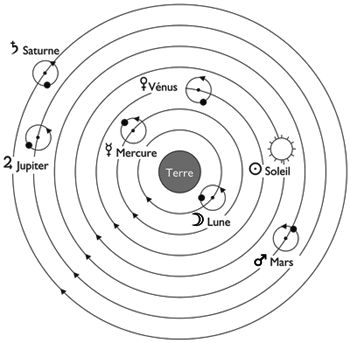 It is hard to imagine them today, given the fragmentation and specialization of knowledge. In the time of Ptolemy or even Kepler, a single man with a strong personality and great intelligence could bring together all the knowledge of his time. Hence, they were scholars who could understand the unity of man and the world. This no longer seems possible now, while this unit is still present. In this sense, astrology is at least culturally very valuable, since it allows us to continue to think of the unity between the microcosm and the macrocosm against the rationalist dwarfs of official science.
It is hard to imagine them today, given the fragmentation and specialization of knowledge. In the time of Ptolemy or even Kepler, a single man with a strong personality and great intelligence could bring together all the knowledge of his time. Hence, they were scholars who could understand the unity of man and the world. This no longer seems possible now, while this unit is still present. In this sense, astrology is at least culturally very valuable, since it allows us to continue to think of the unity between the microcosm and the macrocosm against the rationalist dwarfs of official science.
Opposite, Ptolemy’s geocentric solar system and its epicycles).
You are probably aware that there are two ways of approaching astrology. The first, rational, physical and natural, is called “Chaldean”, in reference to the Mesopotamian scholars to whom Ptolemy referred; the second, mystical, symbolist and irrational, is said “Egyptian”, because it was the ancient Egyptians who initiated it. What is your own position on astrology? Do you practice it? Are you rather “Chaldean” or rather “Egyptian”?
I do not practice astrology and I am not an astrologer, but I must admit that this knowledge challenges me more and more. My poetic side is sensitive to the mythical dimension, “Egyptian”, but I place myself frankly in the realistic, natural perspective of “Chaldeans” and of Ptolemy.
The unique book of astrology (the Tetrabible), Claudius Ptolemy, translation Pascal Charvet, Ed. Nile.
Text published in Astrologos No. 4, April 2001.
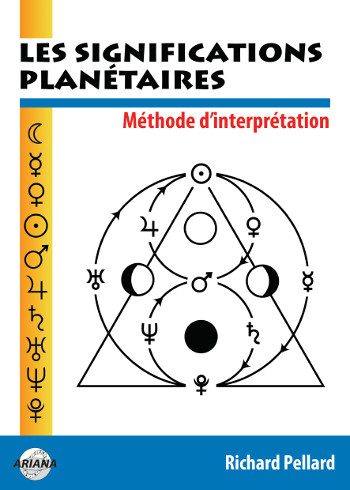
Les significations planétaires
par
620 pages. Illustrations en couleur.
La décision de ne traiter dans ce livre que des significations planétaires ne repose pas sur une sous-estimation du rôle des Signes du zodiaque et des Maisons. Le traditionnel trio Planètes-Zodiaque-Maisons est en effet l’expression d’une structure qui classe ces trois plans selon leur ordre de préséance et dans ce triptyque hiérarchisé, les Planètes occupent le premier rang.
La première partie de ce livre rassemble donc, sous une forme abondamment illustrée de schémas pédagogiques et tableaux explicatifs, une édition originale revue, augmentée et actualisée des textes consacrés aux significations planétaires telles qu’elles ont été définies par l’astrologie conditionaliste et une présentation détaillée des méthodes de hiérarchisation planétaire et d’interprétation accompagnées de nombreux exemples concrets illustrés par des Thèmes de célébrités.
La deuxième partie est consacrée, d’une part à une présentation critique des fondements traditionnels des significations planétaires, d’autre part à une présentation des rapports entre signaux et symboles, astrologie et psychologie. Enfin, la troisième partie présente brièvement les racines astrométriques des significations planétaires… et propose une voie de sortie de l’astrologie pour accéder à une plus vaste dimension noologique et spirituelle qui la prolonge et la contient.
Téléchargez-le dès maintenant dans notre boutique
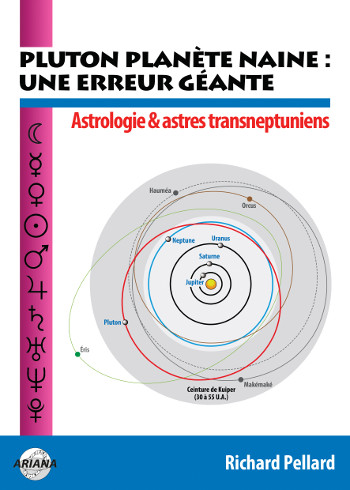
Pluton planète naine : une erreur géante
par
117 pages. Illustrations en couleur.
Pluton ne fait plus partie des planètes majeures de notre système solaire : telle est la décision prise par une infime minorité d’astronomes lors de l’Assemblée Générale de l’Union Astronomique Internationale qui s’est tenue à Prague en août 2006. Elle est reléguée au rang de “planète naine”, au même titre que les nombreux astres découverts au-delà de son orbite.
Ce livre récapitule et analyse en détail le pourquoi et le comment de cette incroyable et irrationnelle décision contestée par de très nombreux astronomes de premier plan. Quelles sont les effets de cette “nanification” de Pluton sur son statut astrologique ? Faut-il remettre en question son influence et ses significations astro-psychologiques qui semblaient avérées depuis sa découverte en 1930 ? Les “plutoniens” ont-ils cessé d’exister depuis cette décision charlatanesque ? Ce livre pose également le problème des astres transplutoniens nouvellement découverts. Quel statut astrologique et quelles influences et significations précises leur accorder ?
Enfin, cet ouvrage propose une vision unitaire du système solaire qui démontre, chiffes et arguments rationnels à l’appui, que Pluton en est toujours un élément essentiel, ce qui est loin d’être le cas pour les autres astres au-delà de son orbite. Après avoir lu ce livre, vous saurez quoi répondre à ceux qui pensent avoir trouvé, avec l’exclusion de Pluton du cortège planétaire traditionnel, un nouvel argument contre l’astrologie !
Téléchargez-le dès maintenant dans notre boutique